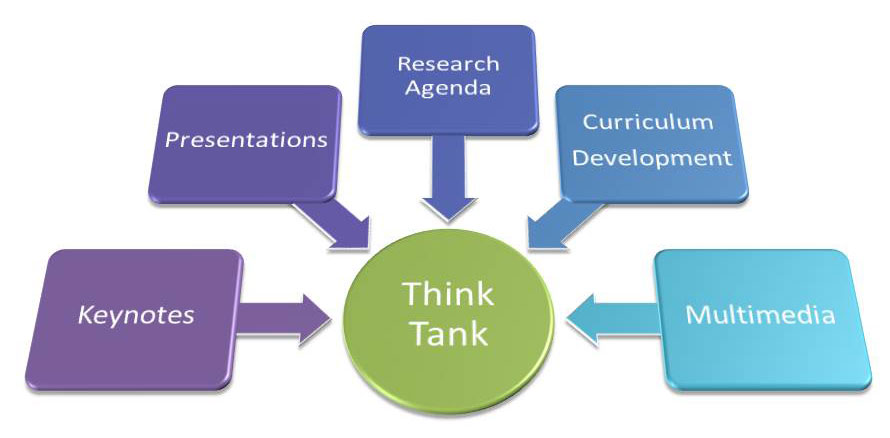THINK TANKS
- What a Think Tank is
- Past Think Tanks
- Think Tank XIX
- Think Tank XVIII
- Think Tank XVII
- Think Tank XVI
- Think Tank XV
- Think Tank XIV
- Think Tank XIII
- Think Tank XII
- Think Tank XI
- Think Tank X
- Think Tank IX
- Think Tank VIII
- Think Tank VII
- Think Tank VI
- Think Tank V
- Think Tank IV
- Think Tank III
- Think Tank II
- Think Tank I
THINK TANKS: WHAT A THINK TANK IS
Think Tank Purpose
BEST EN Think Tanks are annual three day events which aim to push the field of sustainable tourism research and education forward. They are typically held in the summer at a university where sustainable tourism is taught and researched. They consist of research presentations, keynote speakers and interactive workshop sessions to develop curriculum resources and research agendas. Each year the Think Tank has a particular theme and seeks to provide vision and cutting-edge insight to the topic at hand.

Research Papers: Each Think Tank provides an opportunity for researchers to present their work. A call for papers is usually circulated amongst members of the tourism research community. Submitted papers are double-blind peer reviewed and accepted papers are presented at the Think Tank. Thank Tank presentations are typically shorter than those presented at conventional research conferences.
Keynote Speakers: Key experts in the field are invited to share their knowledge on topics related to the overall theme of the Think Tank.

Workshops: Each Think Tank provides an opportunity for participants to highlight and explore aspects of the theme. Workshop techniques are used to identify content areas and learning outcomes that can be used by educators in sustainable tourism. These workshops also provide an opportunity to identify topics and areas that require further research. The key outcomes of these workshops therefore include curriculum outlines and research agendas. Some Think Tanks also result in the production of other materials such as Powerpoint slides, books and videos.
Participants
The Think Tank is open to academics, educators, researchers, government officials, industry experts, sustainability experts, environmental, economic, community and cultural experts in the tourism field. A passion for the topic of sustainability helps but is not necessary. Those willing to be creative, explore new ideas, are comfortable with unconventional approaches, and seek a broader perspective to the field are welcome.

